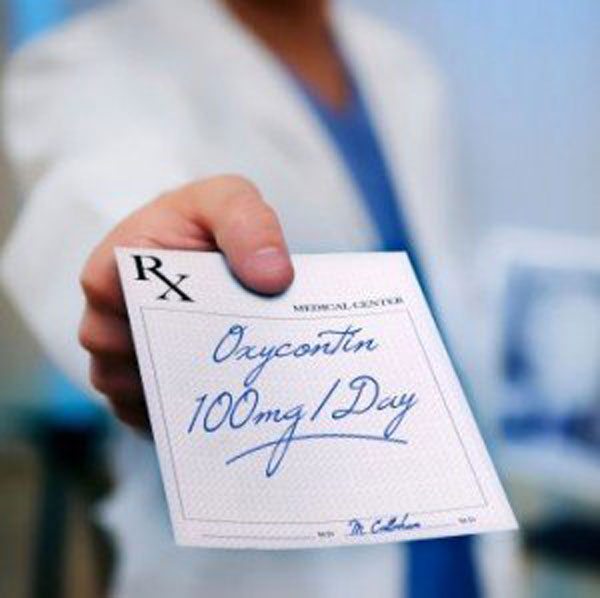
February 13, 2018; Los Angeles Times and the Guardian
Purdue Pharma, the maker of OxyContin and a private company owned by members of the Sackler family, announced that it will stop promoting its opioid drugs to doctors, reports Ben Poston in the Los Angeles Times. The measure, announced by the Connecticut-based firm, involves “cutting its sales force in half, leaving about 200 representatives in the US, who no longer will visit doctors’ offices to discuss the company’s opioid products.”
The company is, however, still producing a high-potency 80-miligram version of OxyContin that many have recommended be discontinued. Dr. Andrew Kolodny of Brandeis University told Poston that he welcomed the firm’s move to curtail marketing, but said, “It’s pretty late in the game to have a major impact.”
Kolodny added that, “The genie is already out of the bottle. Millions of Americans are now opioid-addicted because the campaign that Purdue and other opioid manufacturers used to increase prescribing worked well. And as the prescribing went up, it led to a severe epidemic of opioid addiction.”
Meanwhile, both Purdue Pharma and the Sacklers face pressures to take further action. As we have covered in NPQ, lawsuits have been piling up. It is now estimated that over 200 lawsuits have been filed against Purdue and other defendants for damages caused by the nation’s opioid addiction epidemic. The Centers for Disease Control and Prevention (CDC) wrote that there were 42,249 deaths in the US from opioids in 2016, five times greater than in 1999. As a consequence of the epidemic, US life expectancy fell in 2016 for the second year in a row (2017 figures are not yet available), the first time there has been such a two-year decline since 1963. The CDC estimates that “direct health care costs, lost productivity and costs to the criminal justice system” total $78.5 billion a year. Estimates of total costs stemming from the opioid epidemic, including the economic value of lives lost, have topped $500 billion a year nationally.
Sign up for our free newsletters
Subscribe to NPQ's newsletters to have our top stories delivered directly to your inbox.
By signing up, you agree to our privacy policy and terms of use, and to receive messages from NPQ and our partners.
At the end of January, Dan Polster, US District Court judge, held a conference with plaintiffs and defendants of multiple lawsuits in his Cleveland courtroom. Three attendees, speaking anonymously to Bloomberg, indicated that, “The judge has said he wants a deal that goes further than money to also address business practices and the roots of the crisis.” Among those who spoke at the conference were a number of states’ attorneys general, including Ohio’s Mike DeWine, Alabama’s Steve Marshall, Tennessee’s Herbert Slatery, and Kentucky’s Andy Beshear. Drugmaker representatives, including ones from Purdue Pharma, spoke as well; Purdue’s representatives reportedly said that if there is to be a settlement, the firm wants all industry participants, not just named defendants like Purdue, to contribute to the settlement fund.
To date, although seven family members have served on the firm’s board of directors (one of whom—Raymond’s widow Beverly, age 93—recently stepped off the board), the Sacklers are not named defendants in any lawsuits. But Mike Moore, a former Mississippi attorney general, has said that the corporate veil may soon be pierced. “I know several of the firms working on these cases are doing a really deep dive to make that happen, working very hard to break through the corporate veil so they can name the owners,” Moore said.
Moore, who is known for his role in the 1990s tobacco cases, is also, as Walters writes, one of the “key attorneys in litigation brought by several states against Purdue and other pharmaceutical firms.”
As Walters reports, fissures also exist within the Sackler family as well. In the early 1990s, after Arthur Sackler died of a heart attack in 1987, his heirs sold their share of Purdue Pharma for a paltry $22.4 million to Arthur’s brothers Raymond and Mortimer—six of whose children and grandchildren serve presently on the Purdue board. Obviously, this sale occurred before Purdue, based on sales of OxyContin, grew into the multi-billion-dollar company that it is today. According to Walters, “The mere multi-millionaire branch of the family related to eldest brother Arthur is estranged from the other two multi-billionaire branches.”
Speaking to Walters, Dame Jillian Sackler—Arthur Sackler’s widow— said that she believes that her husband “would not have approved of the widespread sale of OxyContin.” She added that she felt that the other branches of the family “have a moral duty to help make this right and to atone for any mistakes made” in relation to the opioid crisis.—Steve Dubb












